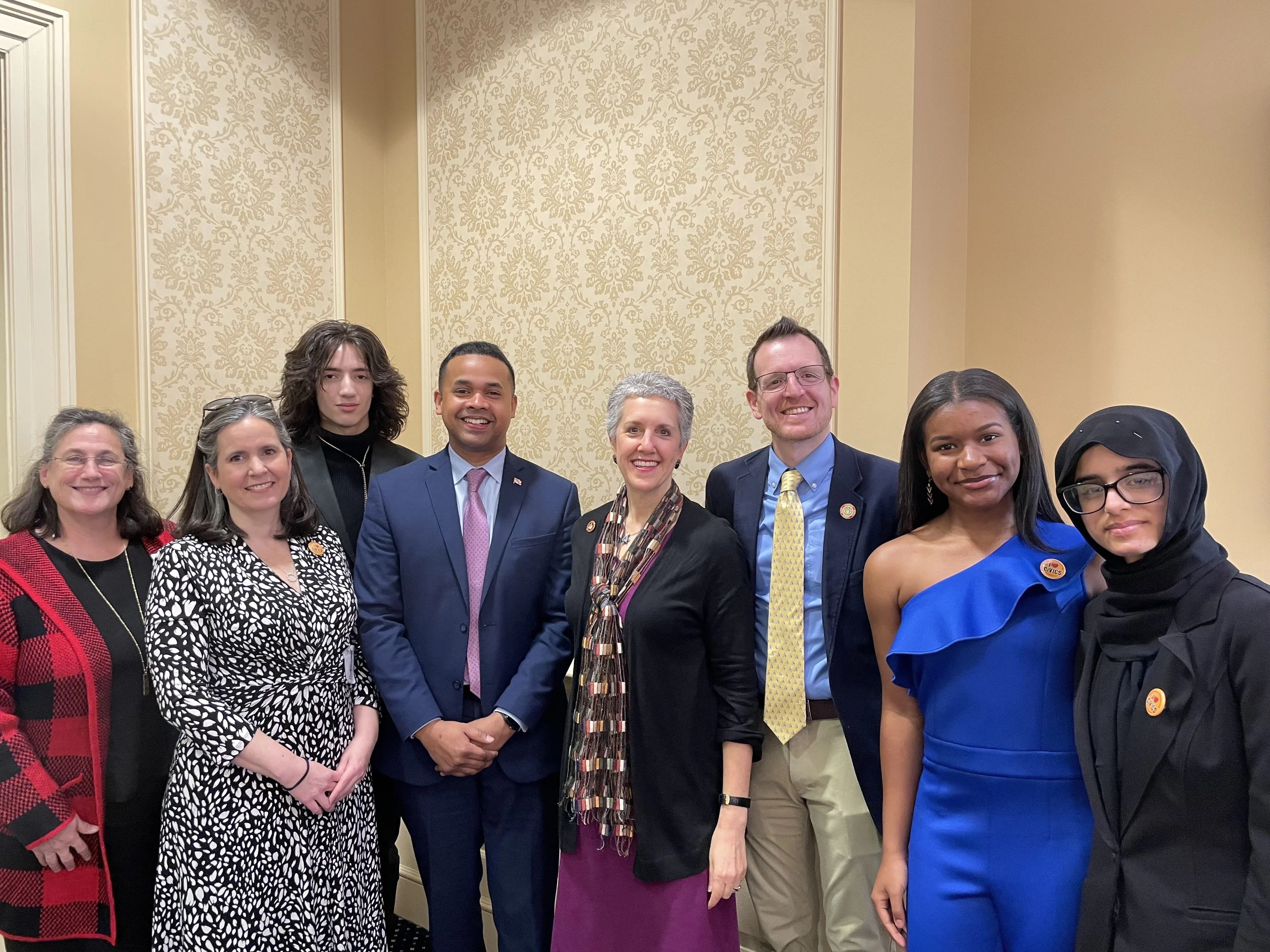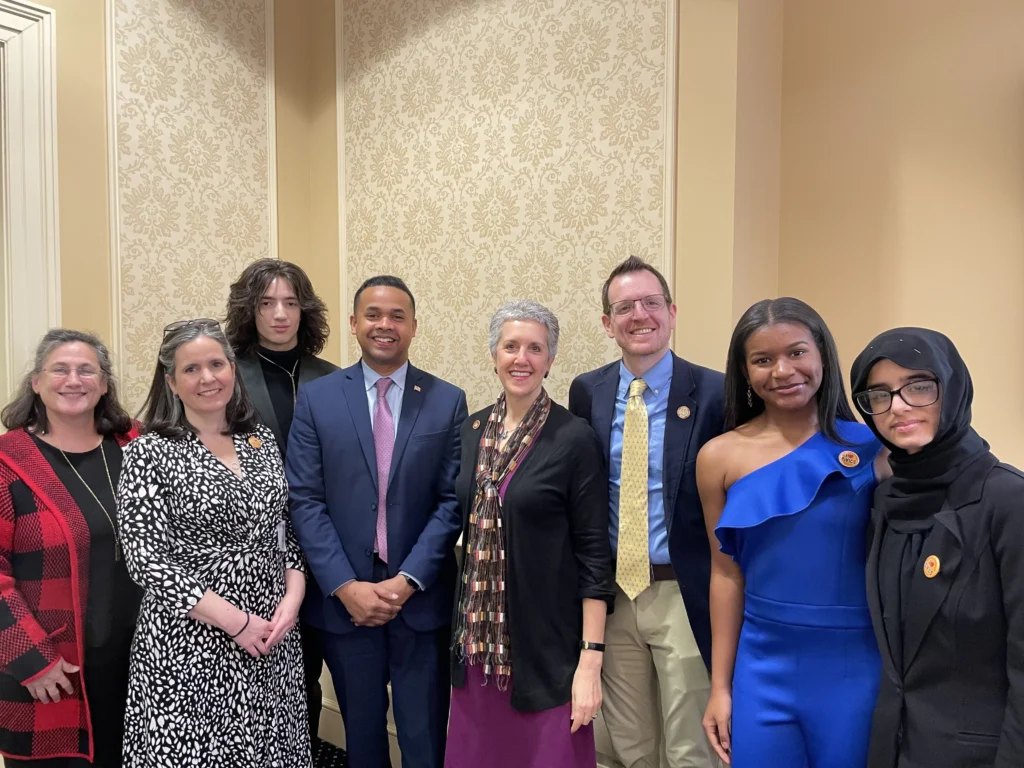During the most recent session of the Maryland General Assembly, which concluded in Annapolis on April 8, several faculty and students from the University of Maryland School of Education testified and met with legislators to influence and advance education policy. .
Drew S. Fagan, a clinical associate professor and TESOL program coordinator whose research focuses on multilingual education, is a member of the Maryland House Appropriations Committee, also known as the Credit for All Language Learning (CALL) Act. He testified in support of House Bill 569. The law requires English for Speakers of Other Languages (ESOL) courses taken at community colleges to be credit-bearing and transferable to four-year institutions of higher education. The bill passed with bipartisan support in the Maryland House and Senate, as well as support from the Maryland Education Association, the Maryland Association of Community Colleges, and the University System of Maryland. It has now safely arrived at Governor Wes Moore's desk and awaits the governor's signature.
In his testimony, Mr. Fagan emphasized the importance of equitable education for all students and the social value of language learning. He also highlighted the bill's potential to foster a more inclusive learning environment for multilingual students in linguistically diverse Maryland.
“The CALL Act is a great step forward for multilingual learners seeking higher education in Maryland and a model for the nation,” Fagan said. “Part of what it means to be leaders in our field is to use our voices and positions to be advocates for multilingual learners and their educators inside and outside of the classroom.” I am honored to have been a part of the process.”

Additionally, Lena Morreale Scott, Senior Faculty Specialist, Director of the Civic Education and Engagement Initiative, Principal Investigator of the Maryland Democracy Initiative (MDI), and Co-Chair of the Maryland Civic Education Coalition (MDCEC), I testified in favor of Bill 762. , commonly known as the “Citizen Seal” bill. This bill would establish the Maryland Civic Excellence Program, which is designed to recognize high school students who model civic engagement and public schools that promote civic preparation. Through this program, students will have the opportunity to receive the 'Seal of Excellence' and the school will be designated as a Center of Civic Excellence. Scott's testimony focused on the value of active citizenship and community involvement for Maryland's students and public school system in creating a more just society.
“Through the Maryland Civic Excellence Program, we promote positive experiences for our students through service learning and engage young people in “It can prepare and inspire a lifetime of service and civic engagement.”
Founded in 1999, the Maryland Green Schools Program aims to equip students with knowledge about environmental sustainability and impact. Associate Dean for Academic Affairs and Professor Doug Lombardi championed green schools through his support of House Bills 997 and 1102. These bills will ensure that green schools provide exemplary models of scientific and technological spaces, provide professional development for teachers and staff, and promote schools as hubs of environmental learning. Mr. Lombardi's testimony represents a step toward empowering communities with the knowledge and resources they need to support sustainable practices and build a greener future.
“Teachers are paving the way for students to learn the basic science that supports thriving ecosystems and healthy communities and thriving economies,” Lombardi said in his testimony. “But teaching about the complexities of environmental sustainability can be difficult. Teachers and staff…need the space, tools, and resources to engage as a community of educational practitioners to guide students to success. Masu.”
Students and faculty also met with individual legislators to discuss education-related issues. Students and teachers from the Maryland Initiative for Literacy and Equity (MILE) met with legislators to discuss a variety of issues, including literacy, early childhood education, and ways to support teacher pipelines and career ladders. Ta. Meanwhile, students, faculty and peer mentors from the TerpsEXCEED program, which provides a two-year college experience for students with intellectual disabilities, also visited the lawmakers. Led by Senior Faculty Specialist and TerpsEXCEED Director Amy Dwyer Dougherty, the group will provide financial support for inclusive postsecondary education and current and new inclusive college programs, as well as funding for families across the state. proposed.
Current students Daniel Brodsky, Evan Miller, and Billy Riggs had the opportunity to share their TerpsEXCEED stories and showcase the impact the program has on students’ personal and professional growth. Brodsky told lawmakers that the program “gave me some useful lessons.” [him] arrival [his] My career goal is to become a disability advocate,” Miller said. “I enjoy being a part of TerpsEXCEED and going to college at UMD. I am maturing a lot in that I am learning how to make new friends.”
Collectively, the College of Education has demonstrated true support for creating positive change and helping shape a more equitable education system for Maryland's current and future students.
Photo above: TerpsEXCEED program students, faculty, and peer mentors meet with legislators in Annapolis. From left to right: TerpsEXCEED student Billy Riggs, graduate assistant Isabel Jensen, student Evan Miller, director Amy Dwyer Dougherty, and Sen. Craig Zucker (D-14th District).


